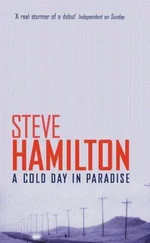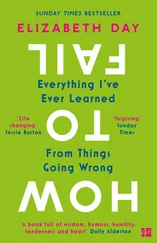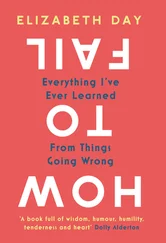He is aware, even in the midst of his supposed abandon, of the need not to stain the maid’s dark trousers.
Once a tailor, always a tailor, as his mum might say. God rest her soul.
ESME
Esme has started walking to the office as part of a springtime health kick. She lives in Shepherd’s Bush and works on High Street Kensington, so admittedly, it’s not the most arduous walk and, according to those miserable cut-out-and-keep fitness guides in various women’s magazines, it will hardly burn any calories at all (something called spinning does that, she has discovered, and she imagines a stuffy room filled with Victorian peasants frantically producing exercise leotards from their super-fast spinning wheels). Anyway, apparently spinning gets rid of 450 calories an hour. A Mars bar contains 280. So the chances are that her forty-five-minute walk will allow her to eat approximately half a molecule more chocolate than she would do otherwise.
But the walk makes her feel better, mentally. It makes her feel she’s doing something, at least, instead of sitting on her arse all day, either at her desk or in the train on the way to another futile doorstep on editor’s orders. Esme doesn’t need to lose weight. She possesses the natural slenderness of the terminally neurotic. But, being a woman, she feels guilty about not exercising. And her colleague Sanjay once told her that your metabolism slowed down to a crawling pace when you hit thirty. She’d been eating a baked potato at the time.
‘You won’t be able to do carbs any more,’ he’d said, flicking an elegant wrist in her direction. ‘You’ll want to be eating seeds and grains.’
‘Seeds and grains?’ She pushed the baked potato to one side, regretfully. ‘What, like birds?’
Sanjay nodded knowledgeably. He was the health editor and abreast of such things.
‘Keen-wah,’ he said. ‘That’s what you’ll need.’
‘Bless you.’
‘Ha-de-bloody-ha. I’m only telling you this for your own good, missy. This’ – he flapped a hand in front of her torso – ‘doesn’t come for free.’
When she’d turned thirty last December, Sanjay’s words had jangled in her head like a drawerful of mismatched cutlery. She was terrified that she’d pile on unwanted pounds purely by eating the same as she’d always done. For about a week, Esme had stuck faithfully to the recipes provided by a ‘Low-GI’ website but, by the end of seven days, she was heartily sick of egg-white omelettes and slow-release oats. Then it was Christmas anyhow so there was no point in thinking about calorie control, and after a few months she realised nothing had changed. She still hovered around nine stone and ideally wanted to be eight, like Liz Hurley, but there were some things you just had to live with.
If only she were more like Robbie. Her brother had an innate capacity for getting on with life. He never worried too much about anything and, as a result, he seemed to love exercise purely for the uncomplicated physical motion, as if the pump and pound of each straining muscle could push out extraneous thought. He’d done the London Marathon last year in under five hours without even trying. She’d been there to cheer him on past the finish line and he’d given her a huge, sweaty hug from underneath a crinkly silver blanket that was meant to help his muscles relax.
She hates running. The walking though … the walking was a good thing. Esme liked the routine of it. She liked putting on her trainers (last worn when she tried out – unsuccessfully – for the university hockey team) and packing her smart shoes in a bag to change into later because it prolonged the morning, delaying the inevitability of work just that little bit longer.
The trainers make her feel she is bouncing along the pavement. Today, the bounce is accentuated by her good mood. She’d had a page lead-in on Sunday about the power of optimism that was followed up by most of the dailies including the Mail, which carried a substantial op-ed piece by a ‘self-confessed Victor Meldrew’ headlined: ‘Optimism? Bah humbug!’ For the Mail to follow you up was a considerable feather in your cap. Dave, the news editor, would be pleased.
She reaches a stretch of Holland Park Road lined by upmarket shops. There is a butcher’s here that is rumoured to be patronised by the Queen. Esme once bought a chicken from them in an emergency (she’d forgotten the main part of a roast she was meant to be cooking) and was charged £16 because it had been ‘corn-fed’. At £16, she would have preferred it to have been fed the sacrificial entrails of small human babies, but she didn’t complain out loud. Most of her fury was internal. She was that kind of person.
She crosses the road at the traffic lights, upping her pace to fit in with the rhythm of a new boy-band hit that is storming the charts. It is a saccharine number about finding teen love and although Esme knows she should hate it, knows that any journalist worth their salt would pour cynical bile over the lyrics and the sentiment, secretly she loves it. At work, Esme tries to keep her naïve idealism under wraps, but it’s not easy. When they’d covered the Royal Wedding last year, she’d cried a little watching the service on the big screens in the office – just at the bit where William saw Kate in that amazing dress for the first time – and Dave had caught her.
‘Time of the month?’ he said, patting her on the shoulder. And then, condescendingly, ‘Don’t worry, Es. Harry’s still on the market.’
Her prolonged single status was a source of much office merriment. Well, she thinks, as she powers on up towards Notting Hill, she’d rather be on her own than in a marriage like Dave’s. He’d been with his wife since time began but was known as a shagger – it was all those long office hours and willing student journalists, desperate for a job on a national straight out of the City postgrad course. Shame, really, as his wife was lovely and normal: she’d been to a couple of the office Christmas parties and was a petite, surprisingly pretty blonde woman who worked as a supply teacher and – shockingly – didn’t drink much. They had four photogenic children at various schools and universities which meant Dave had no hope of quitting any time soon, unless an exceptionally generous voluntary redundancy package came his way.
‘You want my advice?’ he’d said to Esme at a recent leaving party, slurring his words and bending his head in too close to hers so that she could smell the brackishness of hours-old white wine on his breath. ‘Get out while you can. Go and make some money. Wish I’d done that. Wish I’d gone into fucking PR like my mate Rupert …’
She didn’t like it when Dave got drunk. It demeaned him, she thought, made him like all the others. Sober, he was a brilliant news editor: dogged but instinctive and blessed with a peculiar ability to inspire loyalty despite his personal failings. You genuinely wanted Dave to say something you did was good. In his day, he’d been a solid but unexceptional reporter on the Express and covered the first Iraq War. But it was editing that brought the best out of him, that played to his sense of mischief and his mistrust of authority.
Esme sighs. She has a bit of a crush on Dave, actually, which is odd considering he isn’t what you might describe as a looker. He is half an inch shorter than her for a start, with boxer’s shoulders and a chunky, muscular frame: not the type she’d normally go for at all. But there’s something about him. She’s always been a sucker for men in power, for a start, and he’s funny too, in a quiet, lethal way. She catches him sometimes, just after he’s issued one of his sarcastic put-downs to an unsuspecting reporter, and his face looks like a small boy’s: cheeky eyes and a lopsided grin that almost makes you forget the bad teeth and the irritating habit he has of practising his golf swings when you’re trying to talk to him.
Читать дальше












